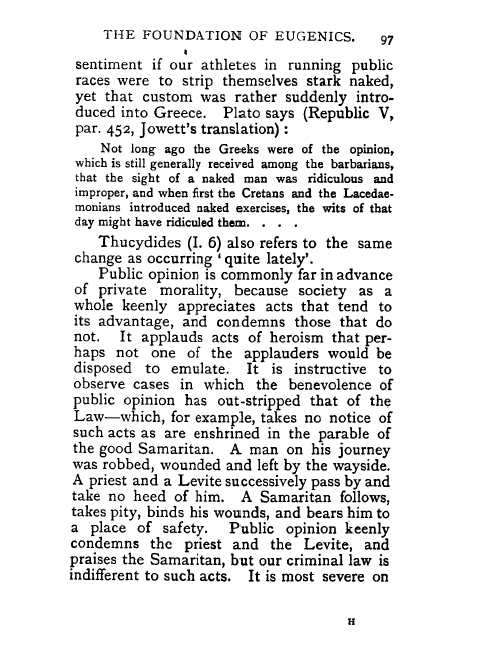THE FOUNDATION OF EUGENICS. 97
sentiment if our athletes in running public races were to strip themselves stark naked, yet that custom was rather suddenly introduced into Greece. Plato says (Republic V, par. 452, Jowett's translation)
Not long ago the Greeks were of the opinion, which is still generally received among the barbarians, that the sight of a naked man was ridiculous and improper, and when first the Cretans and the Lacedaemonians introduced naked exercises, the wits of that day might have ridiculed them. . . .
Thucydides (I. 6) also refers to the same change as occurring ' quite lately'.
Public opinion is commonly far in advance of private morality, because society as a whole keenly appreciates acts that tend to its advantage, and condemns those that do not. It applauds acts of heroism that perhaps not one of the applauders would be disposed to emulate. It is instructive to observe cases in which the benevolence of public opinion has out-stripped that of the Law-which, for example, takes no notice of such acts as are enshrined in the parable of the good Samaritan. A man on his journey was robbed, wounded and left by the wayside. A priest and a Levite successively pass by and take no heed of him. A Samaritan follows, takes pity, binds his wounds, and bears him to a place of safety. Public opinion keenly condemns the priest and the Levite, and praises the Samaritan, but our criminal law is indifferent to such acts. It is most severe on
H

